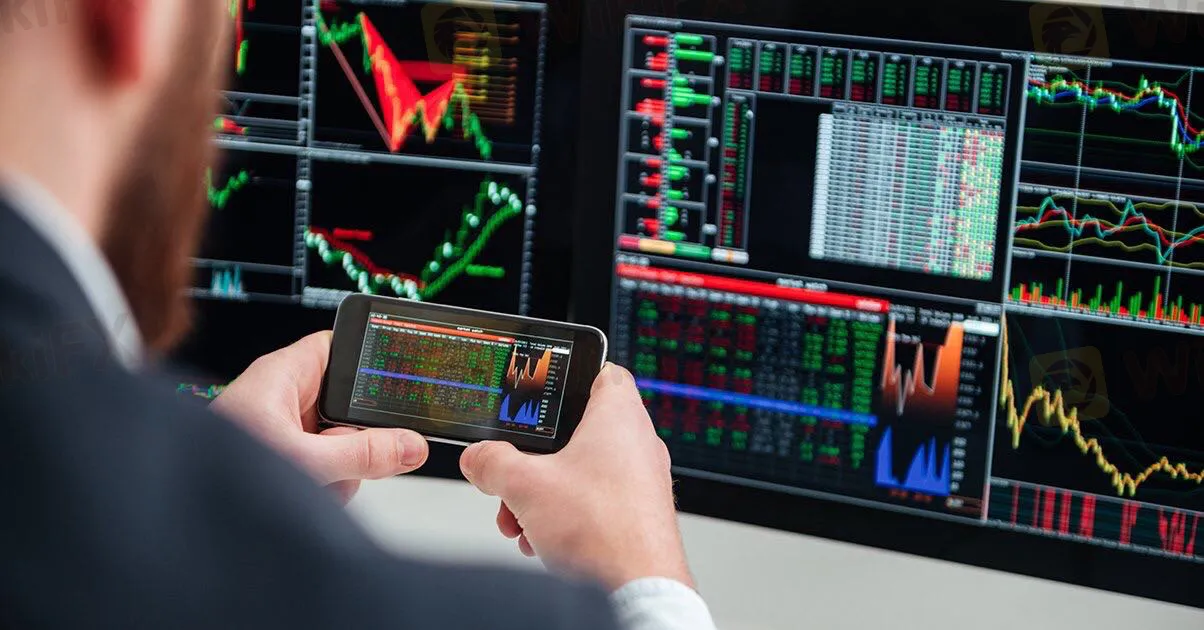简体中文
繁體中文
English
Pусский
日本語
ภาษาไทย
Tiếng Việt
Bahasa Indonesia
Español
हिन्दी
Filippiiniläinen
Français
Deutsch
Português
Türkçe
한국어
العربية
The Most Important Elements of Determining Currency Value for Traders
Abstract:Many Forex traders ask what determines the value of a currency, and which are the elements that move with its change in the currency chart.

Many Forex traders ask what determines the value of a currency, and which are the elements that move with its change in the currency chart.
There are a number of factors that form the basis of currency valuation, which usually include the general economic expectations of countries, in addition to the monetary policy set by the central bank of each country separately.
Relative evaluation
In the Forex market, the value of a currency is generally expressed in terms of other currencies rather than absolute terms. However, the price of gold, the world's main hard currency, when expressed in a country's currency, can be considered an absolute valuation for that paper currency.
The value of a nation's quoted currency in relation to another country's currency is composed of the forex rate of that specific currency pair. This market-determined valuation will normally respond to both countries' long-and-short term economic prospects and their business cycles and interest rate cycles.
While some economists assume that volatility in the forex market is essentially a random march over time, this random walk theory has been used in the development of currency options pricing models.
However, examining a currency's price movement over time provides substantial evidence to the contrary. For example, when long-run charts are drawn, the currency pair tends to show its tendency in a particular direction.
This change in direction can often be attributed to the managed gradual trends or shifts in the monetary policy of one country's central bank relative to the other country's central bank.
The country's currency is the country's stock
Just as a company's shares reflect public opinion about the value of the company, a nation's currency tends to reflect how the global market values its economic prospects and the country's future in relation to other countries.
If the company is doing well, making higher profits and paying higher dividends to its shareholders, that company's stock will tend to rise. In the same way, a country that does well economically with interest rates attracting investment will usually be more appreciated than a country with a slower economy and lower or declining interest rates.
Of course, the example of currency valuation in this case might be an over-simplification of the process, especially given the complex nature of the global market and the complex interplay of supply and demand factors.
However, this type of comparison can provide a simple framework for equity traders to understand how the forex market values currencies.
Currency reserves and the extent of their impact on the valuation
Some currencies are treated as “reserve currencies”. These reserve currencies are often held in central banks and can be used to intervene in markets to support the local currency. Obtaining this status also means that the currency is generally accepted internationally to pay off debt or to buy goods.
The US dollar has traditionally been held for this purpose, as well as for the designated reserve currency involved in purchasing basic commodities such as gold and oil.
These factors have effectively prevented the US dollar from weakening against other currencies, despite the economic downturn and other serious financial and trade balance problems facing the US. However, these weaknesses will result in the depreciation of the US dollar compared to hard asset commodities such as gold and oil.
Other fundamental factors that go into evaluating currencies
One of the main factors involved in valuing currencies, as most Forex experts agree, is the interest rate differential between the two currencies that make up the respective currency pair.
Some of the other fundamental factors that affect currency valuation include:
* Economic prospects for growth.
* The rate of inflation or deflation and expectations.
* Trade deficit or surpluses.
* The nation's money supply.
* The nation's credit rating.
* Securities are used to support the currency.
All of these valuation elements tend to influence the exchange rate of the currency pairs to some degree. Economists often assign weights to each currency in order to create long-term exchange rate projections.
Basically, monitoring the major economies concerned can be a useful indicator for predicting long-term trends in valuing one currency against another.
(Source: https://www.borsaforex.com/عناصر-تحديد-قيمة-العملة/)
Disclaimer:
The views in this article only represent the author's personal views, and do not constitute investment advice on this platform. This platform does not guarantee the accuracy, completeness and timeliness of the information in the article, and will not be liable for any loss caused by the use of or reliance on the information in the article.
Read more

Weekly Fundamental Gold Price Forecast: Hawkish Central Banks a Hurdle
WEEKLY FUNDAMENTAL GOLD PRICE FORECAST: NEUTRAL

Gold Prices at Risk, Eyeing the Fed’s Key Inflation Gauge. Will XAU/USD Clear Support?
GOLD, XAU/USD, TREASURY YIELDS, CORE PCE, TECHNICAL ANALYSIS - TALKING POINTS:

British Pound (GBP) Price Outlook: EUR/GBP Downside Risk as ECB Meets
EUR/GBP PRICE, NEWS AND ANALYSIS:

Dollar Up, Yen Down as Investors Focus on Central Bank Policy Decisions
The dollar was up on Thursday morning in Asia, with the yen and euro on a downward trend ahead of central bank policy decisions in Japan and Europe.
WikiFX Broker
Latest News
Hackers Charged for $11M Crypto Theft Using SIM-Swaps
Role of Central Banks in the FX Market
FCA Alerts Against Sydney FX
What Makes Cross-Border Payments Easier Than Ever?
Trader Exposes Unethical Practices by STP Trading
Bitcoin Nears $100,000: A Triumph of Optimism or a Warning Sign?
Malaysian Man Loses RM113,000 in Foreign Currency Investment Scam
Mastercard Partners with JPMorgan for B2B Cross-Border Payments
FCA Identifies Clone Firm Exploiting Admiral Markets' Credibility
Coinbase Under Scrutiny Amid Wrapped Bitcoin Delisting Controversy
Currency Calculator


